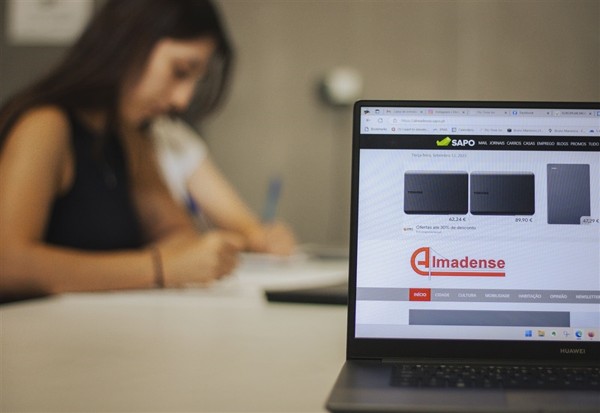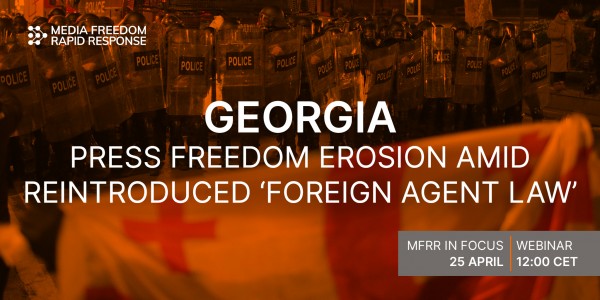IPI Deplores Governmental Interference in Countries on the “IPI Watch List”
At the Board Meeting of the International Press Institute (IPI), held in Paris, France, on 20 October, the Executive Board unanimously agreed to keep South Korea, Russia, Sri Lanka, and Venezuela on the “IPI Watch List” and to place Zimbabwe on the list. Also present at the meeting were IPI National Committee chairmen and IPI Fellows.
With regard to South Korea, where a politically motivated tax probe has led to the indictment of thirteen media owners for tax evasion and embezzlement, with three of the newspaper owners being held in custody until their trial, IPI strongly believes that:
The arrest and detention of the newspaper owners were undertaken as a means of suppressing and intimidating the media,
The South Korean government should call a halt to its attempts to infringe the editorial independence of the critical media,
The South Korean government should refrain from applying financial pressure on the management of the media, and
The South Korean government should recognise that, in seeking to intimidate the media, it is undermining its reputation abroad as a democratic country which upholds the fundamental principles of press freedom and freedom of expression.
Taking the above into consideration, the Executive Board re-affirmed its previous decision to place the country on the “IPI Watch List”.
Speaking of the disturbing situation, IPI Director Johann P. Fritz said, “The prosecution authorities recently demanded a prison term of seven years in the case of the president of the Chosun Ilbo, Bang Sang-Hoon. This provides further evidence that the present prosecutions, under President Kim Dae-Jung’s control, are an attempt to suppress and intimidate the media.”
Fritz went on to say “the judiciary should act fairly and equitably when deciding the cases of those indicted, particularly with the three media owners currently in detention. In addition, the judiciary should take into consideration such important factors as the international principles of freedom of the press and the government’s obvious utilisation of a tax investigation to suppress freedom of expression. IPI simply does not understand why the three media owners were not given bail and demands that they should be immediately released”.
IPI Chairman Hugo Buetler, editor-in-chief of the Neue Zuercher Zeitung, said, “In recognition of the courage shown by IPI Vice Chairman Bang Sang Hoon, IPI has decided to keep him not only as a Board member but also as the Vice Chairman of the IPI, despite the fact that his term ends next year at the IPI General Assembly. The IPI Board unanimously agreed to continue their co-ordinated efforts in every possible way until the Korean media crisis is resolved.”
Regarding the state of press freedom in Russia, the Executive Board concluded that the country continues to be an extremely dangerous place for journalists to work in, with several recent reports of violent attacks and threats against journalists. Commenting on the situation, Fritz said, “Press freedom is being eroded in Russia. Restrictions in Chechnya continue to prevent journalists from reporting the news, while the regional media suffer from threats to withdraw economic support which in turn encourages self-censorship”.
Sri Lanka was also kept on the IPI Watch List. The Executive Board stated that, although a recent relaxation of the censorship rules provides a measure of hope, the government still continues to play the potentially dangerous game of branding some journalists “traitors”. In addition, the use of criminal defamation laws to exhaust media finances and encourage self-censorship, and physical attacks on journalists show that the media still face hardships in Sri Lanka. “The behaviour of the government towards the media ebbs and flows with its successes in the fight against the LTTE and, until a resolution is found to this conflict, it is unlikely to stop,” said Fritz.
Concerning Venezuela, the Executive Board also agreed that the country should be kept on the “IPI Watch List”. Relations between President Hugo Chávez and the media have continued to deteriorate since the last Board Meeting in Delhi, India. A decision of the Venezuelan Supreme Court, Decision 1013, has opened the door for the judiciary, largely dominated by Chávez supporters, to punish the media for criticism of the president. “Chávez’s aggressive rhetoric has contributed to a climate of intimidation and hostility towards the press in which self-censorship is becoming widespread. IPI fears that Chávez’s aggressive style is also being imitated by public officials, particularly in the country’s interior”, commented Fritz.
In addition, the Executive Board unanimously agreed to place Zimbabwe on the “IPI Watch List”. IPI is deeply concerned at attempts to extinguish press freedom in the country against a background of government support for this activity and reluctance to prosecute offenders, restrictions imposed, or contemplated, by the government on the media, and the breakdown of the rule of law.
IPI has noted with increasing alarm that attacks on press freedom in sub-Saharan Africa, in particular, appear to be contagious and that countries eagerly adopt the media restrictions imposed by others. Apart from the fact that restrictions on the media in any form are unacceptable, IPI is deeply conscious of the resulting inroads into the democratic process that these undesirable practices induce and the dangers this holds for the collapse of the fragile fledgling, multiparty democracies that have emerged in the last two decades and the potential for them to revert to dictatorships.
Devised by IPI, the “IPI Watch List” is a mechanism to detect and document regressive tendencies in countries that appear to be moving towards restricting press freedom. Each country’s status on the “IPI Watch List” will be evaluated twice yearly by the Executive Board.
During their Paris meeting, the Executive Board also met with the Director-General of UNESCO, Koichiro Matsuura, the Assistant Director General for Communication and Information of UNESCO, Abdul Wahid Khan, and the Director of the Division for Freedom of Expression, Democracy and Peace of UNESCO, Martin Hadlow.


